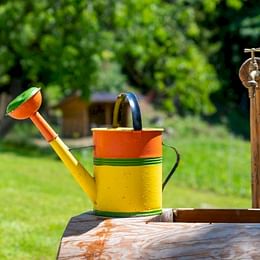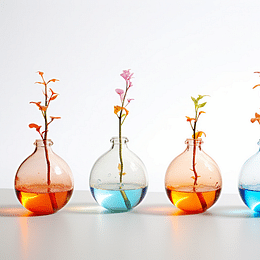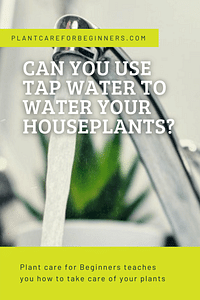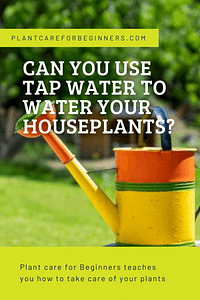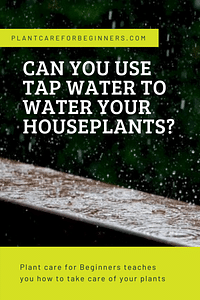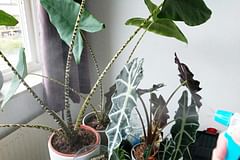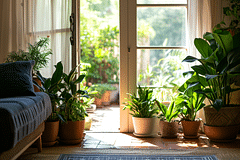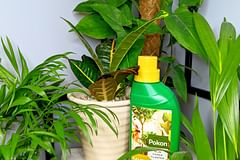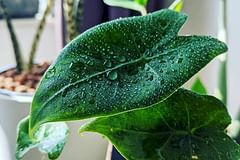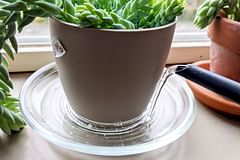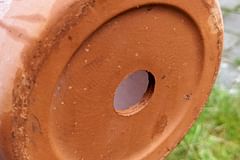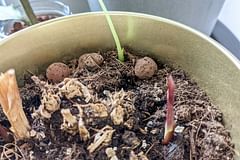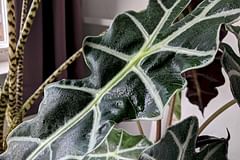Can you use tap water to water your houseplants?
If you've looked for plant advice before, you'll know that many sources tell you you have to use distilled water to water your plants. But is this really true? In this plant care guide, we're going to look at ways you can use tap water to water your houseplants.
Photo by Bob van Aubel on Unsplash
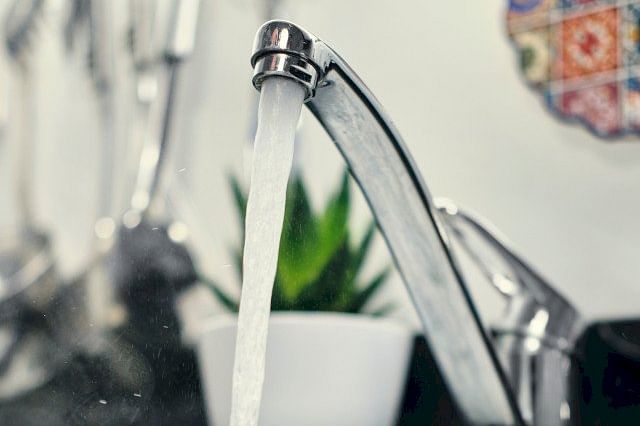
If you've looked for plant advice before, you'll know that many sources tell you you have to use filtered or distilled water to water your plants. But is this really true? Can you not use tap water to water your plants? Are there any alternatives to using distilled water to water your houseplants? These are all great questions and we'll answer those in this plant care guide.
In this plant care guide, we're going to look at using tap water to water your plants. We're going to explore why you should or shouldn't use tap water. Together, we're going to answer the question: Can you use tap water to water your houseplants?
These are the topics we're going to go over in this plant care guide:
- Should you use distilled water to water your houseplants?
- Reasons to avoid using tap water
- How can you use tap water to water your houseplants?
- Alternatives for using distilled water for your houseplants
Let's dive in a clarify whether you can or can't use tap water to water your houseplants.
Should you use distilled water to water your houseplants?
To start off, we'll answer the question: Should you use distilled water to water your houseplants? The short answer is: If you can drink your tap water, so can your plant. If your tap water is not safe for your, you should think about distilled water.
I dislike that most plant care guides tell you that you have to use distilled water to water your plants. Not everyone has the option to use distilled water or wants to go through the effort. Distilled water is a great option, but not the only option.
So we now know that distilled water is a great option, but you still have other options. Let's explore the best way to use tap water if you don't have any other choices. Before that, let's have a look at some reasons to avoid using tap water. We'll look at these reasons to help you decide for yourself what you prefer.
Reasons to avoid using tap water
Tap water, especially when it's not distilled, contains several chemicals that are bad for you and your plants. Your tap water contains things, like lead, chlorine, and pathogens. These are harmful to your plants and will cause problems when you're consistently watering them with this tap water.
Besides these chemicals, the temperature of the water can also play a roll when it comes to plant problems. When you water your plants with ice cold water it could damage the roots. Some (tropical) plants are very sensitive to temperature changes and cold water at their roots could kill them.
Luckily there is a simple way to overcome both challenges at once. That's what the next section will tell you about.
How can you use tap water to water your houseplants?
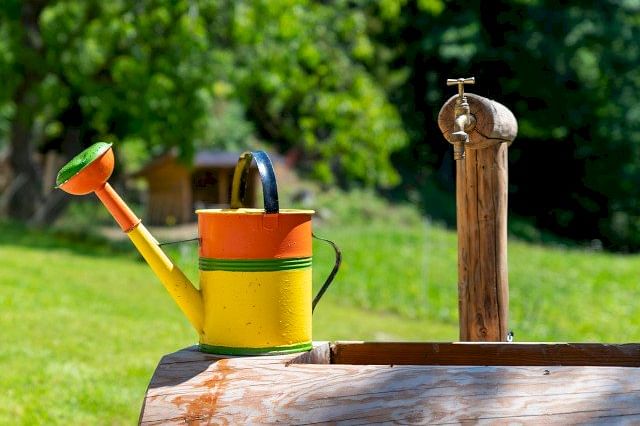 Photo by Robert Hrovat on Unsplash
Photo by Robert Hrovat on Unsplash
We've discovered that distilled water is the best type of water to use to water your houseplants. However, it's not your only option. You can use tap water to water your plants, but it requires a bit of planning on your part. When you're planning to use tap water to water your plants, you need to make sure it's at its cleanest. It's also important to make sure that the water isn't cold and is at room temperature.
When you want to use tap water for your houseplants, you need to let it sit for 24 hours. What does this mean? It means that you have to plan your watering schedule at least 24 hours in advance.
Example: When you want to water your plants tomorrow at 15:00 (3PM), you should fill up your watering can today before that time.
By letting your water sit in the watering can for at least 24 hours, you allow it to settle down. When you let it settle down, most of the particles will slowly sink to the bottom of your watering can. At the same time, your water will warm up until it's at room temperature.
At the end of the 24 hours, right before you're ready to water your plants, the water will have settled and be room temperature. You're now much less likely to expose your plant to the chemicals in the water. You're also not exposing your plant to ice cold water.
Are there other alternatives to using distilled water when watering your houseplants? Yes there are! Let's go through these in the next section.
Alternatives for using distilled water for your houseplants
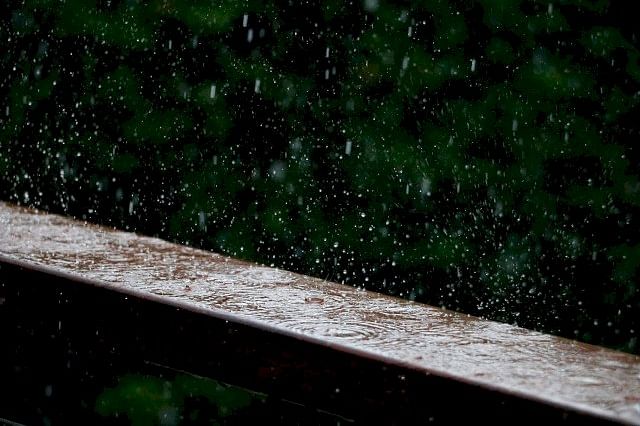 Photo by Liv Bruce on Unsplash
Photo by Liv Bruce on Unsplash
If you're still not ready to use distilled water for your houseplants, you're not out of options yet. There are a few easy ways to water your plants without using distilled water:
- Rain water
- Tap water that has settled for at least 24 hours
- Boiling tap water and letting it cool
Rain water is probably one of the best ways to water your houseplants apart from using tap water. It's clean and doesn't contain any chemicals that the water from your tap contains. The only downside is that you'll need to let the rain water warm up if it's not room temperature yet.
You can also boil tap water and let it cool down to room temperature. This kills the pathogens in the water and gets it at the right temperature. This is a last resort since you could still expose your plant to the chemicals in the water.
Conclusion
Distilled water is still the best water to use when your watering your houseplants. However, it's not the only way. There are a few great alternatives if you're not in a position to use distilled water for all your plant care. You can use tap water, if you let it settle for 24 hours and/or boil. Another great option is to use rain water and make sure it's at room temperature before you use it.
You have a lot of options when it comes to watering your plants, so try them all to see which one works best for you.
Thank you for reading this post! I hope it helps you to keep your plants healthy and beautiful! If you're looking for more guides on specific plants, you can always request a plant guide to get a guide for the plant you have trouble with.
Test your plant care knowledge
Quiz completed!
Want to learn more? Sign up for my newsletter to receive free tips in your inbox!
Sign up now!